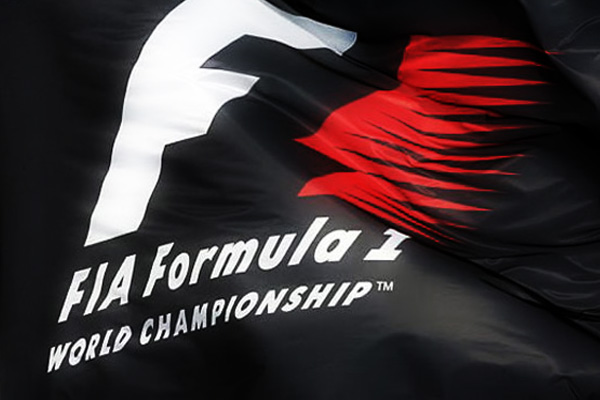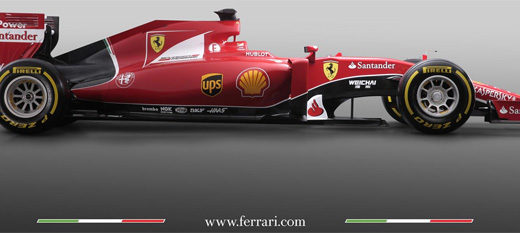Hamilton Champ and Bigger Problems Looming for F1
Lewis Hamilton has once again be crowned F1 champion, this time two races from the end. The competition from Ferrari’s Sebastian Vettel just sort of faded away in the second half of the season, and Hamilton’s own team mate Bottas is no match for the 4 time champion on or off the track, it seems. For the most part, Hamilton’s win brings the same sort of yawn that Vettel’s run at Red Bull did over the years, as people sort of tune out. It doesn’t really help that Hamilton doesn’t seem to have quite the same connection to fans as other champions have, being a little bit distant and less emotionally involved with the sport at times.
But having a repeat champion that people can’t relate to is the least of F1’s ongoing problems. Liberty Media took over F1 this year, and given the odd mixed bag of weird deals and back room agreements that Bernie Ecclestone left them with, they have done a pretty good job overall. The series continues to run like clockwork at the track, and generally provides all that it says it will provide. But the current regulations and current money distribution has backed the series into a very tight corner, one that will be particular hard to get out of.
The current teams agreements go until 2020. So we have at least 3 more seasons under basically the same rules that are current in place. Those rules have created some particularly tough situations, such as having only four engine manufacturers in the series, having only 10 teams (where there should be between 12 and 14 in reality), incredibly huge expenses, and little incentive for anything to change. The 2021 and beyond situation is being negotiated now, and there are a few things already on the table.
Technically, the want to continue with the same size engines, with a few more commonalities to make it easier for teams to change from one source of power units, transmissions, and the like without big changes. They also want to get rid of the heat recovery (MGU-H) which has proven to be very difficult to get right and seems to be a large part of what blocks new engine makers from entering the series. They want to add more revs to the engines to try to recover some of the lost sounds from F1 past. There is of course the usual grumbling, but not as bad as all that so far.
Where the real grumbling comes in is about money. Bernie Ecclestone negotiated a fairly insane set of deals with the teams that sees certain teams (such as Ferrari) getting way more money from the series than some of the smaller teams. It’s pretty amazing that a team like Sauber runs on a budget that is reportedly only 25% of the Ferrari budget – and manage to be less than a couple of seconds a lap out of the lead. Proposals for 2021 and beyond would change that, enough that Ferrari have already issued a very public “we will quit” warning.
Normally Ferrari’s quit threats are taken seriously but only to a certain extent. But with the arrival of Formula E, which is attracting more and more car companies to the series, there appears to be at least some alternative for Ferrari out there. For that matter, Ferrari could stop spending hundreds of millions on F1 each year and likely be much more profitable as a company. So they do have some ground to stand on.
There is also a push for a budget cap system. A couple of years back I posted my views on things F1 needs to address, and while a budget cap is an idea, I think that caps should come in much more concrete ways. That would mean capping the number of people at the events per team, capping the number of people on the grid to start the car, and absolutely banning sending telemetry back to the factory real time. Give each team a set number of people (say 30) at the event, and let them work out how to make it best operate. When you limit the number of people working at the events (and travelling, and taking hotel rooms, meals, and the like) and limit the number of people working on race day, you take a very big step towards cutting costs and limiting the endless resources poured into the operations. It’s reported that teams like Mercedes have 100 or more people at the events, and then an equal number on back in the shop crunching data real time.
If you do the right things, a budget cap isn’t really needed.
Oh, side note for F1: The current engine / transmission / whatever parts limit is silly. It leads to teams doing things that are not good for fans or for your future, like not running as much in practice, or not having third drivers doing testing. With in season testing extremely limited, the teams should want to get every second they can during the race weekend practice sessions, But when they park the cars to save mileage on the motor or “turn the engine down” during the race to improve durability, you have harmed your customers, the fans who watch the race. Fans also particularly hate it when the starting grid for a race is thrown out the window because so many drivers have grid penalties. The system doesn’t work. It penalizes the fans, and teams like McLaren have been laughing at you all season, taking new parts after new parts knowing they will never start worse then 20th.
F1 needs to do something to fix up the grid. 20 cars (10 teams) is an extremely light grid at this point. F1 needs to divert some of the funding it gives out to support at least 13 full time teams. The grid should also be able to support at least a couple of truly independent, single car teams as well. Let’s make it a formula where people can actually build a car and race without having to sell of a small country to pay for it.
Liberty, can you hear the fans any better than (the incredibly deaf) Bernie?














